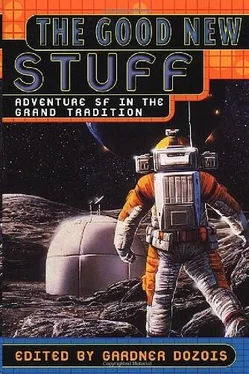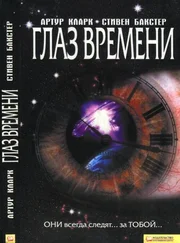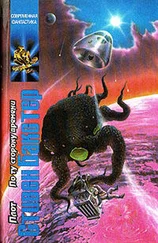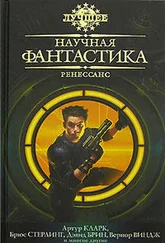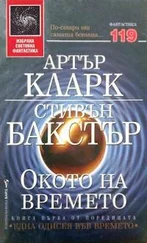Стивен Бакстер - The Good New Stuff
Здесь есть возможность читать онлайн «Стивен Бакстер - The Good New Stuff» весь текст электронной книги совершенно бесплатно (целиком полную версию без сокращений). В некоторых случаях можно слушать аудио, скачать через торрент в формате fb2 и присутствует краткое содержание. Год выпуска: 2002, ISBN: 2002, Издательство: St. Martin's Griffin, Жанр: Фантастика и фэнтези, на английском языке. Описание произведения, (предисловие) а так же отзывы посетителей доступны на портале библиотеки ЛибКат.
- Название:The Good New Stuff
- Автор:
- Издательство:St. Martin's Griffin
- Жанр:
- Год:2002
- ISBN:0-312-26456-9
- Рейтинг книги:3 / 5. Голосов: 1
-
Избранное:Добавить в избранное
- Отзывы:
-
Ваша оценка:
- 60
- 1
- 2
- 3
- 4
- 5
The Good New Stuff: краткое содержание, описание и аннотация
Предлагаем к чтению аннотацию, описание, краткое содержание или предисловие (зависит от того, что написал сам автор книги «The Good New Stuff»). Если вы не нашли необходимую информацию о книге — напишите в комментариях, мы постараемся отыскать её.
The Good New Stuff — читать онлайн бесплатно полную книгу (весь текст) целиком
Ниже представлен текст книги, разбитый по страницам. Система сохранения места последней прочитанной страницы, позволяет с удобством читать онлайн бесплатно книгу «The Good New Stuff», без необходимости каждый раз заново искать на чём Вы остановились. Поставьте закладку, и сможете в любой момент перейти на страницу, на которой закончили чтение.
Интервал:
Закладка:
She massaged the bridge of her nose; she felt an ache spreading out from her temples and around her eye sockets. She wished she had time to sleep.
Scholes started the vehicle up. The rover bounced down the slope, descending into shadow. "It's genuine water-ice snow," Scholes said as he drove. "You know that a day on Mercury lasts a hundred and seventy-six Earth days. It's a combination of the eighty-eight-day year and the tidally locked rotation, which—"
"I know."
"During the day, the Sun drives water vapor out of the rocks and into the atmosphere."
"What atmosphere?"
"You really don't know much about Mercury, do you? It's mostly helium and hydrogen— only a billionth of Earth's sea-level pressure."
"How come those gases don't escape from the gravity well?"
"They do," Scholes said. "But the atmosphere is replenished by the solar wind. Particles from the Sun are trapped by Mercury's magnetosphere. Mercury has quite a respectable magnetic field: the planet has a solid iron core, which…"
She let Scholes' words run on through her head, unregistered.
Air from the solar wind, and snow at the South Pole…
Maybe Mercury was a more interesting place than she'd imagined.
"Anyway," Scholes was saying, "the water vapor disperses across the planet's sunlit hemisphere. But at the South Pole we have this crater: Chao Meng-Fu, straddling the Pole itself. Mercury has no axial tilt— there are no seasons here— and so Chaos's floor is in permanent shadow."
"And snow falls."
"And snow falls."
Scholes stopped the rover and tapped telltales on his control panel. There was a whir of hydraulics, and she heard a soft crunch, transmitted into the cabin through the rover's structure.
Then the rover lifted upward through a foot.
The rover lurched forward again. The motion was much smoother than before, and there was an easy, hissing sound.
"You've just lowered those rails," Larionova said. "I knew it. This damn rover is a sled, isn't it?"
"It was easy enough to improvise," Scholes said, sounding smug. "Just a couple of metal rails on hydraulics, and Vernier rockets from a cannibalized tug to give us some push…."
"It's astonishing that there's enough ice here to sustain this."
"Well, that snow may have seemed sparse, but it's been falling steadily— for five billion years… Dr. Larionova, there's a whole frozen ocean here, in Chao Meng-Fu Crater: enough ice to be detectable even from Earth."
Larionova twisted to look out through a viewport at the back of the cabin. The rover's rear lights picked out twin sled tracks, leading back to the summit of the wall-mountain; ice, exposed in the tracks, gleamed brightly in starlight.
Lethe, she thought. Now I'm skiing. Skiing, on Mercury. What a day.
The wall-mountain shallowed out, merging seamlessly with the crater plain. Scholes retracted the sled rails; on the flat, the regolith dust gave the ice sufficient traction for the rover's wide wheels. The rover made fast progress through the fifty miles to the heart of the plain.
Larionova drank coffee and watched the landscape through the viewports. The corona light was silvery and quite bright here, like moonlight. The central peak loomed up over the horizon, like some approaching ship on a sea of dust. The ice-surface of Chao's floor— though pocked with craters and covered with the ubiquitous regolith dust— was visibly smoother and more level than the plain outside the crater.
The rover drew to a halt on the outskirts of the Thoth team's sprawling camp, close to the foothills of the central peak. The dust here was churned up by rover tracks and tug exhaust splashes, and semi-transparent bubble-shelters were hemispheres of yellow, homely light, illuminating the darkened ice surface. There were drilling rigs, and several large pits dug into the ice.
Scholes helped Larionova out onto the surface. "I'll take you to a shelter," he said. "Or a tug. Maybe you want to freshen up before—"
"Where's Dixon?"
Scholes pointed to one of the rigs. "When I left, over there."
"Then that's where we're going. Come on."
Frank Dixon was the team leader. He met Larionova on the surface, and invited her into a small opaqued bubble-shelter nestling at the foot of the rig.
Scholes wandered off into the camp, in search of food.
The shelter contained a couple of chairs, a data desk, and a basic toilet. Dixon was a morose, burly American; when he took off his helmet there was a band of dirt at the base of his wide neck, and Larionova noticed a sharp, acrid stink from his suit. Dixon had evidently been out on the surface for long hours.
He pulled a hip flask from an environment suit pocket. "You want to drink?" he asked. "Scotch?"
"Sure."
Dixon poured a measure for Larionova into the flask's cap, and took a draught himself from the flask's small mouth.
Larionova drank; the liquor burned her mouth and throat, but it immediately took an edge off her tiredness. "It's good. But it needs ice."
He smiled. "Ice we got. Actually, we have tried it; Mercury ice is good, as clean as you like. We're not going to die of thirst out here, Irina."
"Tell me what you've found, Frank."
Dixon sat on the edge of the desk, his fat haunches bulging inside the leggings of his environment suit. "Trouble, Irina. We've found trouble."
"I know that much."
"I think we're going to have to get off the planet. The System authorities— and the scientists and conservation groups— are going to climb all over us, if we try to mine here. I wanted to tell you about it, before—"
Larionova struggled to contain her irritation and tiredness. "That's not a problem for Thoth," she said. "Therefore it's not a problem for me. We can tell Superet to bring in a water-ice asteroid from the Belt, for our supplies. You know that. Come on, Frank. Tell me why you're wasting my time down here."
Dixon took another long pull on his flask, and eyed her.
"There's life here, Irina," he said. "Life, inside this frozen ocean. Drink up; I'll show you."
The sample was in a case on the surface, beside a data desk.
The thing in the case looked like a strip of multicolored meat: perhaps three feet long, crushed and obviously dead; shards of some transparent shell material were embedded in flesh that sparkled with ice crystals.
"We found this inside a two-thousand-yard-deep core," Dixon said.
Larionova tried to imagine how this would have looked, intact and mobile. "This means nothing to me, Frank. I'm no biologist."
He grunted, self-deprecating. "Nor me. Nor any of us. Who expected to find life, on Mercury?" Dixon tapped at the data desk with gloved fingers. "We used our desks' medico-diagnostic facilities to come up with this reconstruction," he said. "We call it a mercuric, Irina."
A Virtual projected into space a foot above the desk's surface; the image rotated, sleek and menacing.
The body was a thin cone, tapering to a tail from a wide, flat head. Three parabolic cups — eyes? — were embedded in the smooth "face," symmetrically placed around a lipless mouth…. No, not eyes, Larionova corrected herself. Maybe some kind of sonar sensor? That would explain the parabolic profile.
Mandibles, like pincers, protruded from the mouth. From the tail, three fins were splayed out around what looked like an anus. A transparent carapace surrounded the main body, like a cylindrical cloak; inside the carapace, rows of small, hairlike cilia lined the body, supple and vibratile.
There were regular markings, faintly visible, in the surface of the carapace.
"Is this accurate?"
"Who knows? It's the best we can do. When we have your clearance, we can transmit our data to Earth, and let the experts get at it."
Читать дальшеИнтервал:
Закладка:
Похожие книги на «The Good New Stuff»
Представляем Вашему вниманию похожие книги на «The Good New Stuff» списком для выбора. Мы отобрали схожую по названию и смыслу литературу в надежде предоставить читателям больше вариантов отыскать новые, интересные, ещё непрочитанные произведения.
Обсуждение, отзывы о книге «The Good New Stuff» и просто собственные мнения читателей. Оставьте ваши комментарии, напишите, что Вы думаете о произведении, его смысле или главных героях. Укажите что конкретно понравилось, а что нет, и почему Вы так считаете.
